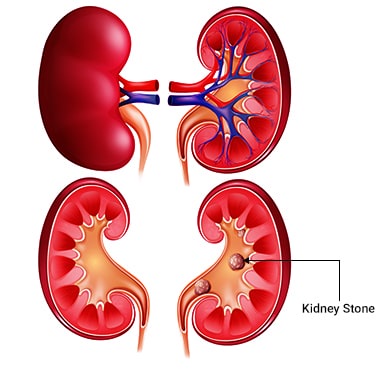Kidney stones are hard, microscopic mineral deposits that can build up in the kidneys and impede the flow of urine, producing excruciating pain. There are various treatments available to get rid of these painful stones from the body. For kidney stones larger than 2 cm, PCNL is a minimally invasive surgical procedure. However, stones as small as 1 cm in size can also be removed through PCNL or ultra mini PCNL thanks to improved techniques and modernized equipment. However, this treatment may not be suitable for everyone.
In this blog, we will discuss the signs that indicate who should get PCNL surgery and who should not. To make this post enriching, we have gathered information from Dr. Niren Rao, a renowned urologist who is the founder and chief practitioner at Delhi Urology Hospital. Continue reading to learn.
What Are the Signs of Ideal Candidates for PCNL Surgery?
- The patient has a significant burden of stones (typically greater than 2 cm). Sometimes, several large stones are in each kidney's calyces, or the kidney is filled with branched stones (staghorn calculus).
- In situations where stones remain intact following extracorporeal shock wave lipolysis (ESWL).
- Stones in parts of the kidney that cannot be removed with a flexible ureteroscope, such as those removed via retrograde intra-renal surgery or RIRS.
- In some instances of kidney malformations, such as horseshoe kidneys, a laparoscopically assisted PCNL may be attempted.
Who are Not Ideal Candidates for PCNL Surgery?
- In case of an infection of the urinary tract. This surgery requires a sterile urine culture beforehand. If a patient has a history of urinary tract infection, antibiotics must be administered, and a second urine culture must be performed to ensure the infection is gone.
- Patients who are taking blood thinners should not get this procedure done. They should first consult with their doctor before stopping their medication for seven to ten days.
- Because this procedure involves fluoroscopy or exposure to X-rays, it is not performed on pregnant patients.
What Preparatory Actions Does A Patient Take To Get Ready For This Surgery?
- In order to identify the presence, quantity, and location of kidney stones, the urologist will order radiological investigations prior to this surgery. This gives them a crucial road map for organizing the procedure, particularly for determining the location of the kidney puncture, which is the most crucial stage in creating a tract from the skin into the kidney. In this context, a non-contrast CT scan (NCCT), an intravenous pyelogram (IVP), and an X-ray KUB may be helpful.
- The doctor recommends quitting smoking if the patient smokes for at least a week or two prior to the procedure.
- Patients are advised to cease taking specific medications for a variety of reasons.
- Patients typically undergo overnight fasting before being admitted on the day of surgery.
Conclusion
Kidney stones are very painful, and if not treated, they can lead to severe complications. If one wants this treatment and is looking for the best urologist in Delhi, one can consult with Dr. Niren Rao. He has performed over 7,000 successful kidney stone surgeries to date. Visit Delhi Urology Hospital to learn more.


No comments yet